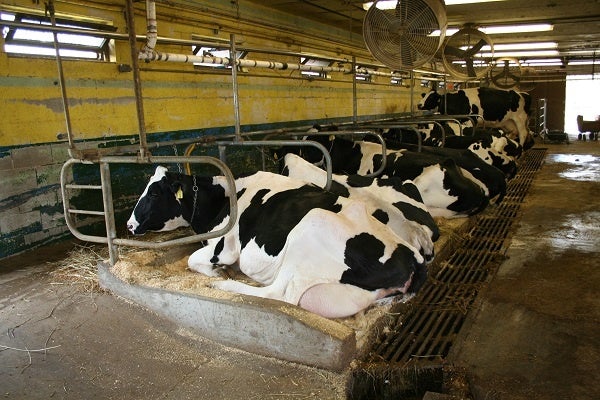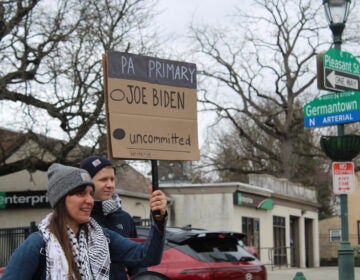Weavers Way and W.B. Saul team up to bring composting to NW Philly
Scott Blunk talks about cow poop and veggie-filled mixtures like they’re jars of salsa, using adjectives like “zesty,” “medium” and “mild.” And while this topic excites him, he’s even more invigorated when he talks about a partnership between W.B. Saul High School and Weavers Way.
“[The compost program has] created the classic circle of life,” he said.
Last August, Blunk — who volunteered at the W.B. Saul High School farm, a community-supported farm that is also in partnership with Weavers Way — said he started the composting program after seeing a truck haul away a bunch of manure produced at the farm.
“The school district was having to pay to get this giant hill of poo hauled away,” he said. “I said ‘wait a minute, why are we throwing this stuff away?'”
The school received a grant 12 years ago to install a compost program, but nobody had the energy to run it. Some of the grant money went to a sect of land with embedded rock to keep liquid waste from running into local streams and rivers, but the rest went by the wayside since the school didn’t have the necessary resources.
But the stars aligned when Blunk decided to undertake the project and when Weavers Way bought a tractor large enough to till the large compost piles.
The process
The co-op ceased paying a composting company to take away its bruised apples, broccoli stems, old produce, used coffee grounds and carrot peelings from the prepared foods section and started storing them outside in 70-pound trash cans. Blunk then began to pick them and up, transport them to Saul High School where they’d be mixed with manure and set windrows — or long rows where compost sits to break down — for six-to-eight weeks.
After the compost is done and ready — which takes several weeks depending on how hot it is outside — students from Saul High School bag three gallons worth of compost to be sold. The $8.99 bags are sold either at Weavers Way, Primex or directly to individuals.
The bags weren’t being sold to the public until the end of this winter. Until then, the co-op and high school were simply using it on their own crops. When the bags did start to go on sale, the money was split 50/50 between Saul High School and Weavers Way. Blunk said compost has been selling like hot cakes, noting he’s delivered compost everyday since the beginning of March.
Compost pick up
Now, residents can now contribute to the compost by having kitchen waste picked up at their door.
As of April, Philly-based Bennett Compost has started picking up compost at members’ homes on a weekly basis. 10 percent of the $15/month pickup charge funnels back into Weavers Way when a member signs up for the compost program. Those who sign up for the program also get two free bags of compost each year.
But in a place like Northwest Philadelphia, where Bennett has about 50 clients, why sign up to have your compost picked up when most folks have the space to do it themselves?
Tim Bennett, owner of Bennett Compost, said it’s due to convenience.
“Some people don’t have the time to necessarily take care of a compost pile or they don’t want to deal with managing the pile correctly,” Bennett said. “They like the idea of someone who’s going to take care of it for them.”
Bennett added a large portion of his 300 clients live in apartments or don’t have the space for a compost pile.
Bennett said the Mt. Airy folks seem to be very eager to join the program — especially when it means giving back to the co-op.
Blunk said something as simple as cow poop not only makes money for the high school and cooperative, but it brings the community together.
“Vegetables and cow poop turn to gold,” he said. “But really the best part about it is the kids — getting them involved in the process.”
WHYY is your source for fact-based, in-depth journalism and information. As a nonprofit organization, we rely on financial support from readers like you. Please give today.













